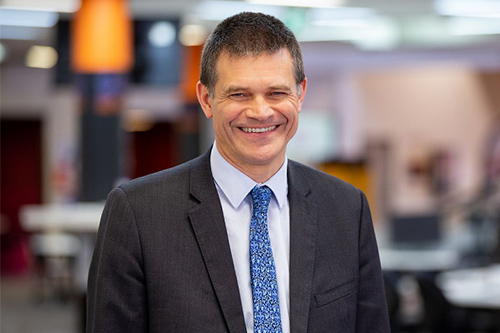
On Wednesday, Charles Sturt University (CSU) staff, students and alumni took part in a day of celebration to mark the 30th anniversary of the University’s foundation.
Marking the occasion, CSU’s Vice-Chancellor Professor Andrew Vann said it was an opportunity to reflect on the contribution that the University had made to its communities, as well as important changes that have been implemented over the years.
“It’s also timely to think about what we want to be in the future,” he said.
“Arriving in Australia from England in 1996, I was struck by the opportunities in our wonderful country, and fell in love with regional communities. I’ve been incredibly lucky to be part of the Charles Sturt University family for almost eight years.”
Professor Vann noted the growth of regions, technological developments in agriculture and the increased capacity in health provision in the Central West, including the co-creation of CSU’s courses working closely with industry in areas like engineering.
“The wonderful thing about working for Charles Sturt University is that although we have challenges in our regions, there is always a new opportunity to meet those challenges through our research and our education,” he said.
‘An ambitious strategy of transformation’
Professor Vann said that over the last two years, CSU has embarked upon an “ambitious strategy of transformation”.
“This strategy has another four years to run to take us to the end of 2022,” Professor Vann said.
“To remain as Australia’s leading regionally-based university, we know we must embrace change; we must adapt to the needs of our students and the Australian employment market.”
Professor Vann said CSU is strongly focused on transforming its service and delivery, changing its courses and launching new schools that regional Australia need.
He added that CSU is also improving its online study options and trialling “new and flexible ways of learning”.
“We’re providing more services to students and investing in more partnerships with our communities. We are determined to meet the challenges that we know are heading our way,” Professor Vann said.
“We are here to create a world worth living in.”
Professor Vann pointed to the challenge of climate change for future generations, saying every day the issue is “demanding answers of us”.
“We must invest in sustainable measures, we must ensure the protection of our environment and the appropriate use of our agricultural lands and water supply,” he said.
“As Australia’s first Federally certified carbon neutral university we have led the way on this.”
Engaging respectfully in reconciliation
Professor Vann also noted the important work the University has done with Indigenous Australians, saying the reconciliation process is critical not only for CSU as a university, but for Australia.
“We have learned so much from working with the Wiradjuri people. Not least, how to engage respectfully in reconciliation and move forward together,” he said.
This year, CSU’s Graduate Certificate in Wiradjuri Language, Culture and Heritage was recognised with a Global Citizenship award by the Talloires Network and McJannet Foundation. The course was created to help the Wiradjuri nation recover language and culture.
“The vision came from Wiradjuri elders and I am proud of our academics and staff who helped that vision become a reality,” Professor Van said.
“Over the next 30 years, my hope for Charles Sturt is that as a community we continue to listen, learn and act in collaboration with the Wiradjuri peoples.”
‘Adapting to new demands is crucial’
Professor Vann highlighted the important role that universities play in the future of Australia’s economic development.
“We need to find those future industries that will take us forward – and create educational opportunities for people to participate in them,” he said.
“At Charles Sturt we have always taught those key courses that are critical to ongoing development: agriculture, communication, health, information technology and education.”
Professor Vann said that as the nation moves into the 21st century, adapting these industries to the new demands will be crucial.
“We have been a strong voice in our communities, and we must continue to be. To do so, we must be deeply connected with our communities, their needs and the ways in which we can meet those needs through our work,” he said.


